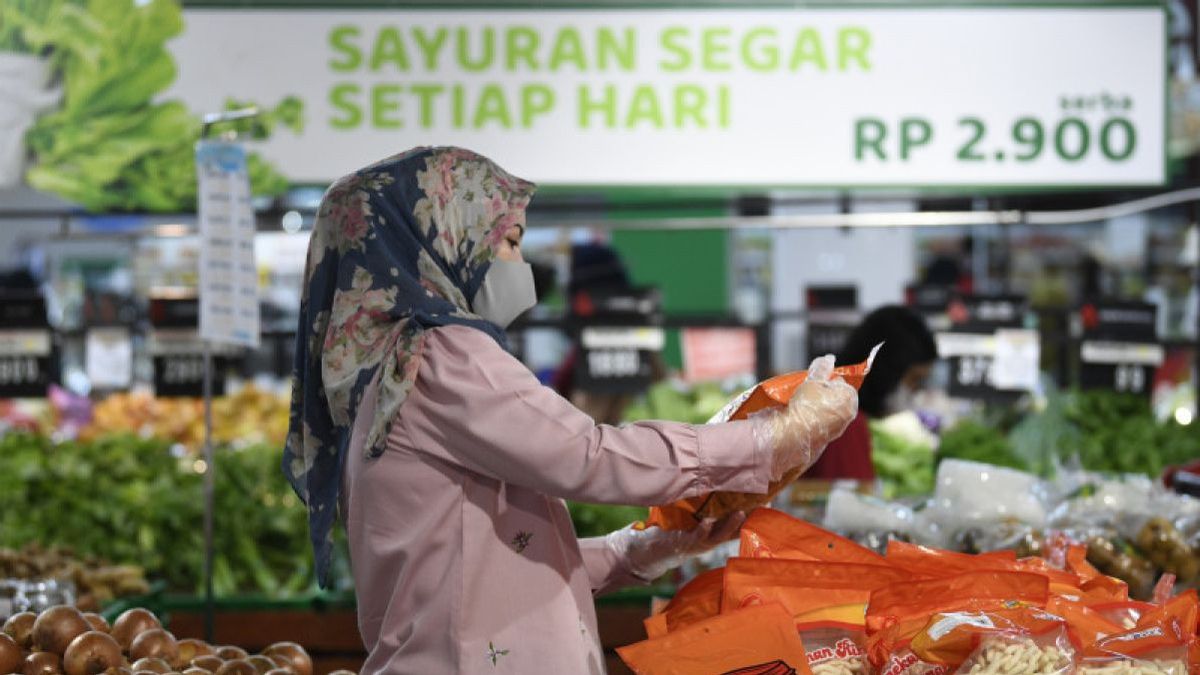JAKARTA - Head of Bank Permata economist Josua Pardede emphasized that the government needs to encourage food price stability and prices for basic necessities in order to maintain the momentum of growth in household consumption amid the slowdown in the global economy.
"The government needs to encourage the stability of food prices and other basic necessities such as clothing and boards so that they can manage people's purchasing power as a whole," he explained to VOI, Tuesday, February 6, 2024.
In addition, according to Josua, the government needs to encourage the level of confidence of middle-income consumers to keep shopping, for example by encouraging DTP VAT incentives.
Josua said the slowdown in household consumption throughout 2023 was influenced by a decrease in the rate of growth in food and beverage consumption.
"Among the detailed household consumption components, we see that the rate of food and beverage consumption has slowed significantly from 4.01 percent (yoy) in the third quarter of 2023 to only 2.56 percent (yoy) in the fourth quarter of 2023," he said.
Josua sees this decline as the impact of the El Nino phenomenon which encourages an increase in food prices, thereby reducing food spending and having a sizeable impact on household consumption.
On the other hand, Josua saw that clothing and footwear consumption was relatively stable in the fourth quarter of 2023. In addition, household appliance consumption grew higher.
According to Josua, another reason why there is a slowdown in household consumption is due to mobility, especially transportation and communication spending experiencing normalization from high base in 2022.
SEE ALSO:
In addition, based on community social groups, the government continues to strive to mitigate the impact of El Nino with the distribution of social assistance aimed at low-income people.
However, middle class consumer groups who fall into the category of vulnerable poor people or fall into the 5th and 6th deciles tend to hold back long-lasting goods shopping.
For information, the Central Statistics Agency (BPS) noted that Indonesia's gross domestic product (GDP) grew 5.05 percent cumulatively or cumulatively to cumulatively (ctc) throughout 2023.
Meanwhile, household consumption is still the driving force for economic growth in 2023. However, household consumption has slowed in 2023 to 4.82 percent when compared to 2022 of 4.94 percent.
The English, Chinese, Japanese, Arabic, and French versions are automatically generated by the AI. So there may still be inaccuracies in translating, please always see Indonesian as our main language. (system supported by DigitalSiber.id)
















